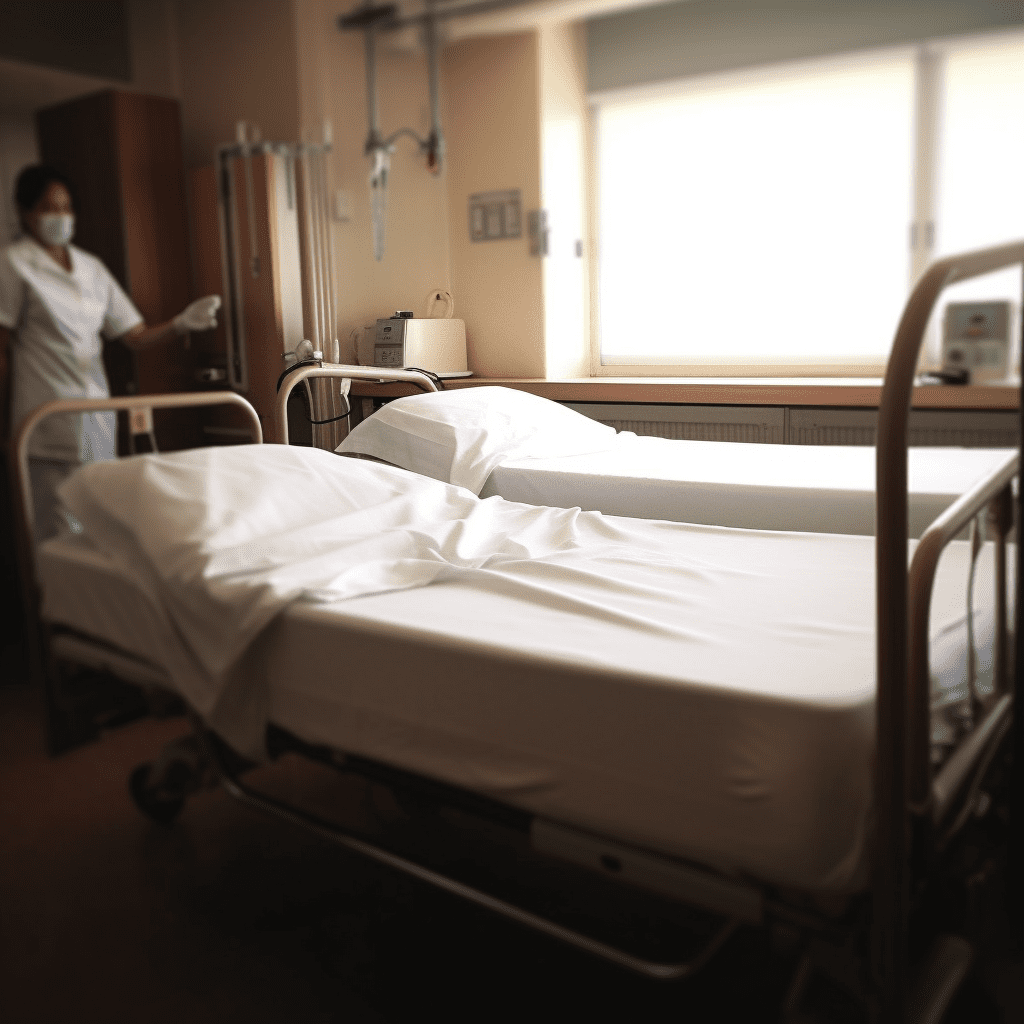Signs of Advanced Prostate Cancer: Recognizing the Late-Stage Symptoms
 3 years ago
By John Lewis Elopre
3 years ago
By John Lewis Elopre

Prostate cancer is a prevalent condition that affects many men worldwide. While the majority of prostate cancer cases are diagnosed in the early stages, it’s important to be aware of the signs of advanced prostate cancer. Recognizing these symptoms can lead to timely intervention and better management of the disease. In this article, we will delve into the various indicators of advanced prostate cancer, helping you understand when the disease might be entering its late stage.
Understanding Advanced Prostate Cancer
Prostate cancer typically progresses in stages. In its advanced stage, the cancer cells have spread beyond the prostate gland and may affect nearby tissues and organs. Recognizing the signs of advanced prostate cancer is crucial for making informed decisions about treatment and lifestyle adjustments.
Symptoms of Advanced Prostate Cancer
2.1 Common Urinary Changes
One of the early signs of advanced prostate cancer involves urinary changes. This may include increased frequency of urination, difficulty initiating urination, weak urine flow, and a persistent feeling of incomplete bladder emptying.
2.2 Bowel Dysfunction
Advanced prostate cancer can also affect the bowel function. Men may experience changes in bowel habits, such as constipation, diarrhea, or blood in the stool.
2.3 Bone Pain
As the cancer spreads to the bones, it can cause persistent bone pain, especially in the hips, spine, and chest. This pain might be dull or sharp and could interfere with daily activities.
2.4 Fatigue and Weight Loss
Fatigue and unexplained weight loss are common symptoms of advanced prostate cancer. The cancer’s impact on the body’s metabolism and energy levels can lead to a noticeable decline in overall health.
2.5 Erectile Dysfunction
Advanced prostate cancer may lead to erectile dysfunction due to the involvement of the nerves and blood vessels that are essential for normal erectile function.
Risk Factors and Progression
3.1 Age and Genetics
Age and genetics play a significant role in the progression of prostate cancer. Men over the age of 65 and those with a family history of the disease are at a higher risk of developing advanced prostate cancer.
3.2 Treatment History
Previous treatments for prostate cancer, such as surgery or radiation therapy, can impact the disease’s progression. Some cases may become resistant to treatment over time.
Diagnosis and Medical Evaluation
4.1 Digital Rectal Exam (DRE)
A digital rectal exam allows the doctor to physically examine the prostate for any irregularities or abnormalities.
4.2 Prostate-Specific Antigen (PSA) Test
The PSA test measures the level of PSA in the blood, which can help in detecting prostate cancer or monitoring its progression.
4.3 Biopsy and Imaging
A biopsy and various imaging tests, such as MRI and CT scans, can provide detailed information about the cancer’s extent and spread.
Treatment Options for Advanced Prostate Cancer
5.1 Hormone Therapy
Hormone therapy aims to suppress the production of testosterone, which can slow down the growth of prostate cancer cells.
5.2 Chemotherapy
Chemotherapy drugs target and destroy cancer cells, particularly those that have spread to other parts of the body.
5.3 Radiation Therapy
Radiation therapy uses high-energy rays to target and eliminate cancer cells while minimizing damage to healthy tissues.
5.4 Targeted Therapy
Targeted therapies focus on specific molecules involved in cancer growth, offering a more precise and effective treatment approach.
Quality of Life Considerations
6.1 Palliative Care
Palliative care focuses on improving the quality of life for patients by managing pain, addressing psychological concerns, and providing support.
6.2 Emotional and Mental Well-being
Coping with advanced prostate cancer can take an emotional toll. Seeking counseling or joining support groups can help individuals and their families manage the psychological aspects of the disease.
Support System and Coping
7.1 Family and Friends
A strong support system of family and friends can greatly assist in navigating the challenges of advanced prostate cancer.
7.2 Support Groups
Joining support groups provides an opportunity to connect with others facing similar challenges, share experiences, and gain valuable insights.
Living with Advanced Prostate Cancer
8.1 Dietary Adjustments
Maintaining a healthy diet rich in nutrients can support overall health and energy levels during cancer treatment.
8.2 Exercise and Physical Activity
Engaging in regular physical activity, as allowed by the individual’s condition, can contribute to better physical and mental well-being.
When to Seek Medical Help
It’s important to seek medical assistance if any of the symptoms of advanced prostate cancer are experienced, as early intervention can lead to better outcomes.
Key Takeaways
Recognizing the signs of advanced prostate cancer is pivotal for making informed decisions about treatment and lifestyle adjustments. By understanding the symptoms and seeking timely medical help, individuals can improve their quality of life and enhance their overall well-being.

Navigating the Complex World of Global Regulatory Affairs in Oncology
In today's fast-paced global pharmaceutical landscape, the regulatory affairs sector plays a pivotal role in ensuring the safety, efficacy, and market access of oncology drugs. As the demand for innovative cancer therapies continues to grow, understanding the intricacies of global...
2 years agoNavigating the Complex World of Global Regulatory Affairs in Oncology
In today's fast-paced global pharmaceutical landscape, the regulatory affairs sector plays a pivotal role in ensuring the safety, efficacy, and market access of oncology drugs. As the demand for innovative cancer therapies continues to grow, understanding the intricacies of global...
2 years ago
Overcoming the Hurdles: Navigating the Challenges in Oncology Clinical Trials
In the world of medical research, oncology clinical trials are at the forefront of innovation and discovery. These trials play a crucial role in advancing our understanding of cancer and developing more effective treatments. However, the path to successful oncology...
2 years agoOvercoming the Hurdles: Navigating the Challenges in Oncology Clinical Trials
In the world of medical research, oncology clinical trials are at the forefront of innovation and discovery. These trials play a crucial role in advancing our understanding of cancer and developing more effective treatments. However, the path to successful oncology...
2 years ago
Embracing a Patient-Centric Approach in Oncology Trials
In the realm of healthcare and medical research, the term "patient-centric" has gained significant traction in recent years. This shift in focus towards prioritizing patients' needs and preferences is not only transforming the healthcare industry but is also making waves...
2 years agoEmbracing a Patient-Centric Approach in Oncology Trials
In the realm of healthcare and medical research, the term "patient-centric" has gained significant traction in recent years. This shift in focus towards prioritizing patients' needs and preferences is not only transforming the healthcare industry but is also making waves...
2 years ago